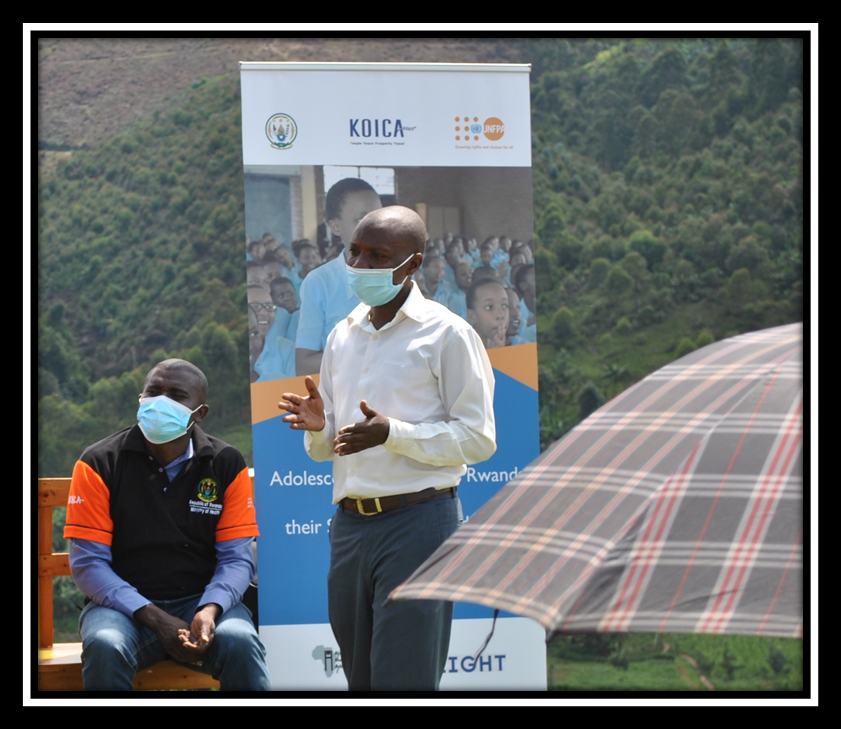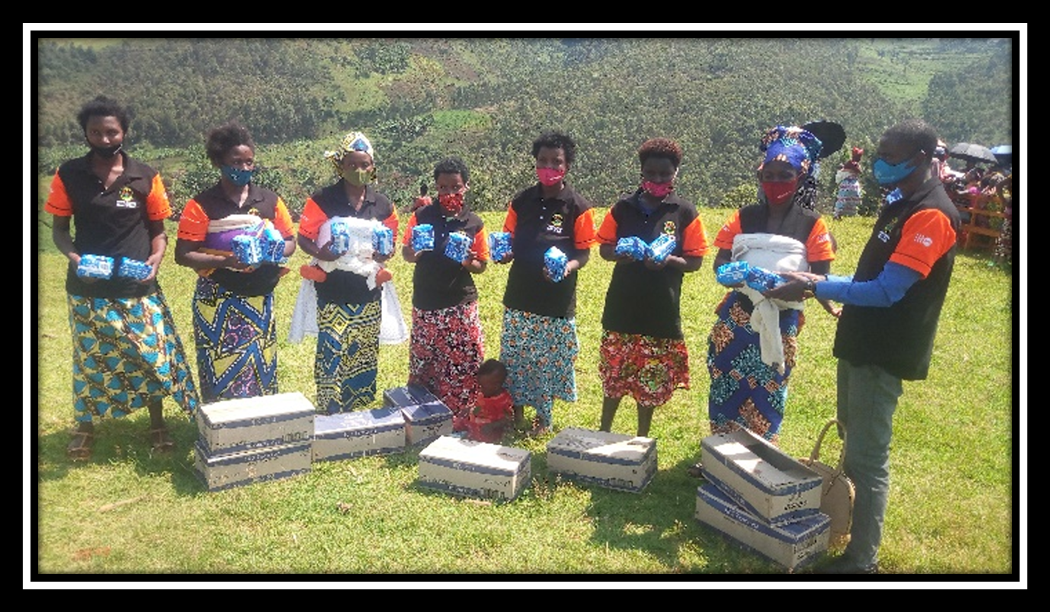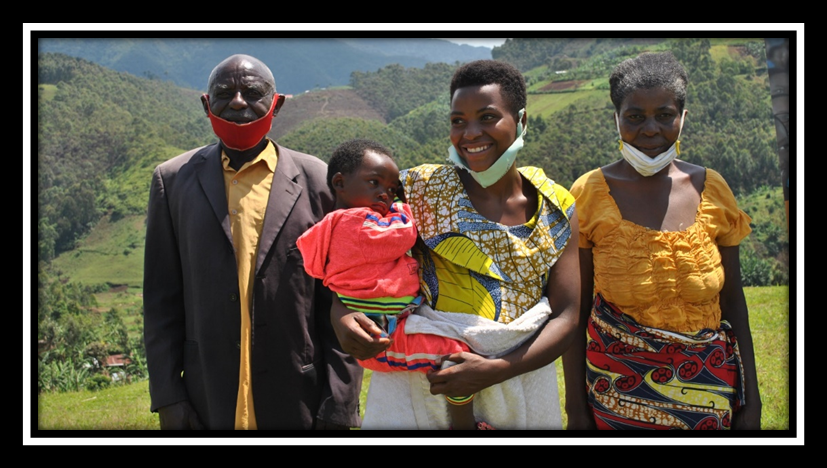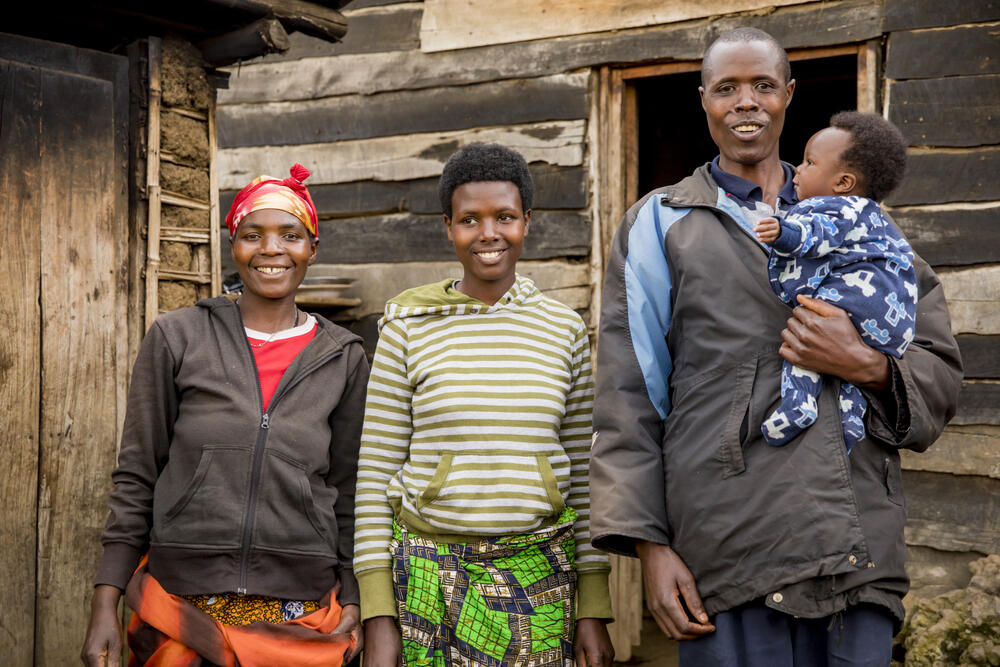While many communities joined the International Commemoration of the Day of the African Child in June 2020, with a commitment to protect children from violence, Francine Uwamahoro 17, from Nyamasheke District in the North- West of Rwanda, stayed home, hiding from the villagers because she was pregnant.
Beside the general pervasive atmosphere, she was also enduring the harsh reality of becoming a mother at 17 years. When her parents learned that she was pregnant, they almost banished her from home, yet the man responsible for the pregnancy, had fled their village for the Capital Kigali, and could not answer her phone calls.
As the storm gathered, Uwamahoro was gripped with more fear when she realized that she was still under her parents' care and could not move to start a family with a man who had already rejected her pregnancy.
“How dare you get pregnant? How do you forget the poor life we are living? How will I be able to feed you, your sisters, and your child with my small income?” Uwamahoro Mother said with an angry tone.
She felt guilty that her mother had to sell their only goat to contribute to her medical bills and other needs during her pregnancy.
“I cried, as I had nothing to tell my mother. Our family is very poor, my parents were already struggling to provide enough food, and to pay for school materials, and health insurance.” said Uwamahoro.
Uwamahoro's story is not different from many other teenage girls in Nyamasheke District. This situation leaves the young mothers vulnerable to many social ills, including school dropout, poverty, gender-based violence, and sexually transmitted infections.
“I have been trying to figure out whether I am a child or an adult. Whenever I think about this, I begin crying, especially when I see my agemates live normal lives and being treated with love by their parents.” Uwamahoro stated.
Local leaders in the Nyamasheke District indicate that teenage pregnancy and early motherhood take an enormous toll on girls' education and income earning potential, causing persistent poverty.

BANKUNDIYE Etienne, Nyamasheke District Official, addressing the Parent-Adolescent Communication Forum.
“Most girls, who become pregnant, drop out from school and are more likely to become pregnant again if they do not get the right information and services. Teenage mothers need health education and moral support to restore their hope towards a brighter future.” Said BANKUNDIYE Etienne.
Joining the First-Time Young Mothers (FTYM) Forum
Uwahoro was identified, in August 2020, by a local community health worker from Gisakura Health Center in Nyamasheke, who informed her more about the club of teen mothers and how they are supported to access the full package of reproductive health and services, including access to antenatal care, prevention of unintended pregnancy, delivery at the health center, and making a plan for a healthy future after delivery.
“Ever since I joined, I have learned a lot about health priorities, and we have started a savings club with other mothers at the health center” Uwamahoro said.
“Joining the club eased my pain and brought happiness back in my life.” She added.
Imbuto Foundation with support from the Korea International Cooperation Agency (KOICA) and United Nations Population Fund (UNFPA), conducts regular parent-adolescent communication (PAC) forums that bring together FTYMs and their parents to plan on supporting teenage mothers jointly, prevent gender-based violence, prevent subsequent unintended pregnancies and to build sustainable sources of income.
At Uwamahoro’s first PAC, FTYMs were trained together with their parents and encouraged to speak about all the pain they had made each other feel. They also shared hopes and plans for the future.

Uwamahoro and other FTYMs after a PAC meeting.
“Even though I had apologized at home, through PAC meetings, I learned about self-esteem and better communication. I gathered the courage to tell my mother in public that I will never get pregnant again until I am legally married to someone.” said Uwamahoro.
PAC meetings bridged a relationship between teen mothers and their parents, families, and relatives.
“Our parents also apologized for the way they had treated us when they discovered that we were pregnant. I felt the river of joy rolling in me!” added Uwamahoro
Parents speak out
When Etienne Sindikubwabo, a parent who lives in Nyamasheke, learned about her daughter’s pregnancy, he felt heartbroken and frustrated to the level of even refusing to provide food for her. For him, she had caused the family shame, and he thought of abandoning home and flee to Kigali. Fortunately, He found a solution in the PAC conversations.
“During PAC sessions, we discovered that it is important to talk about sex and contraception with our children. We were encouraged to be supportive as family members to facilitate our children's coping with the challenges brought by unintended pregnancy and to treat them kindly.” said Mr. Sindikubwabo.

A young mother and her parents after attending the PAC
Ms. Helene Mukamurara, Project Officer, at the Imbuto Foundation explained that six months into the project, funded by KOICA to empower adolescents and youths in Nyamasheke, Rusizi and Karongi districts, they have witnessed great results: including improved communication within the families, improved self-care, healthier behavior, and adolescents beaming with new hope for a brighter future.
“Today, parents come together to plan how to improve the lives of these young, adolescent mothers, motivating other girls in the community to prevent teenage pregnancy, learning how to save money and start earning.” said Ms. Mukamurara.
UNFPA supports a holistic approach to promote sexual and reproductive health rights for all, empowering individuals to make healthy choices and inspiring adolescents and youths to attain their full potential in life. Additionally, UNFPA works to mobilize social support for rights and choices by engaging leaders, men, and boys.
“Especially critical during these challenging COVID-19 times, UNFPA through the Imbuto Foundation is supporting First Time Young Mothers with the provision of Adolescent Sexual and Reproductive Health information and services through trained health providers and peer educators in the communities. It is paramount adolescents continue to be provided with the knowledge and access to services to protect against unintended pregnancies, prevent STIs, HIV/AIDS, and be empowered to make the right choices to continue with their income-generating activities.” said Mark Bryan Schreiner, UNFPA Representative.


